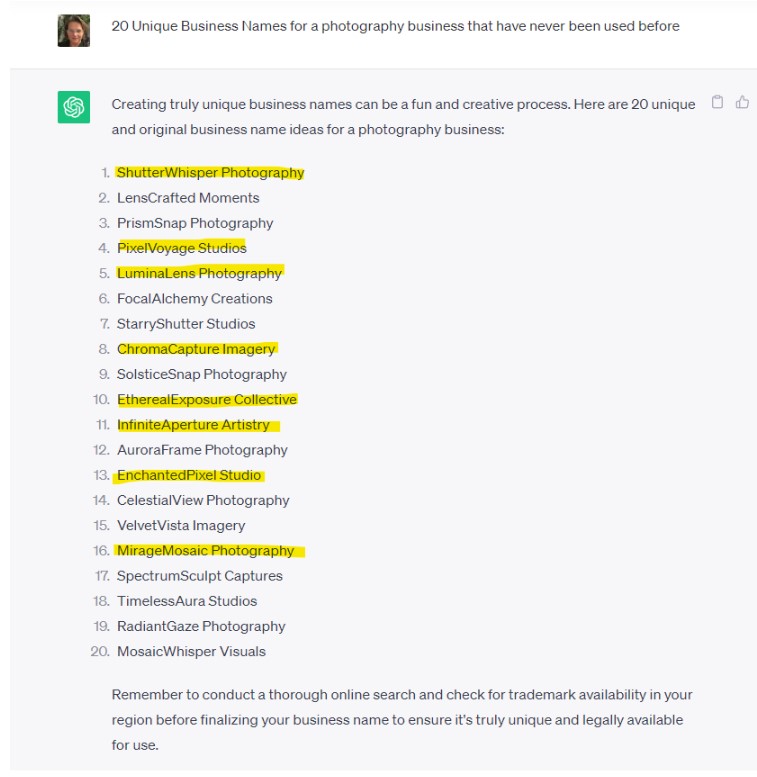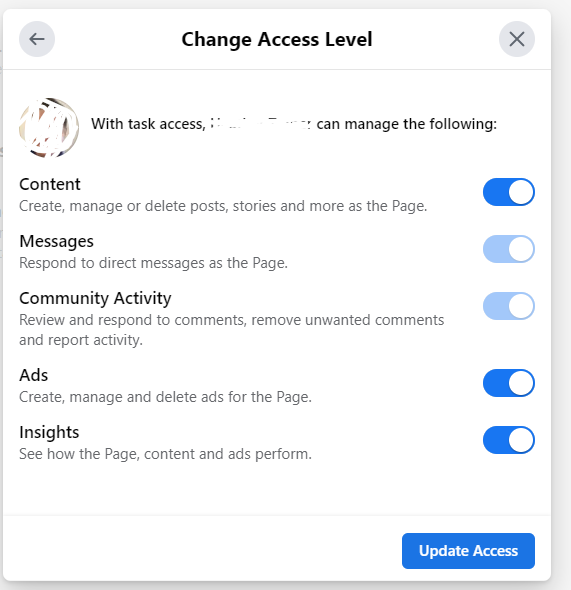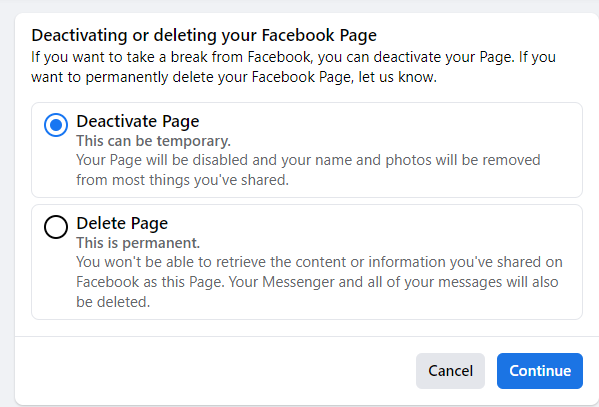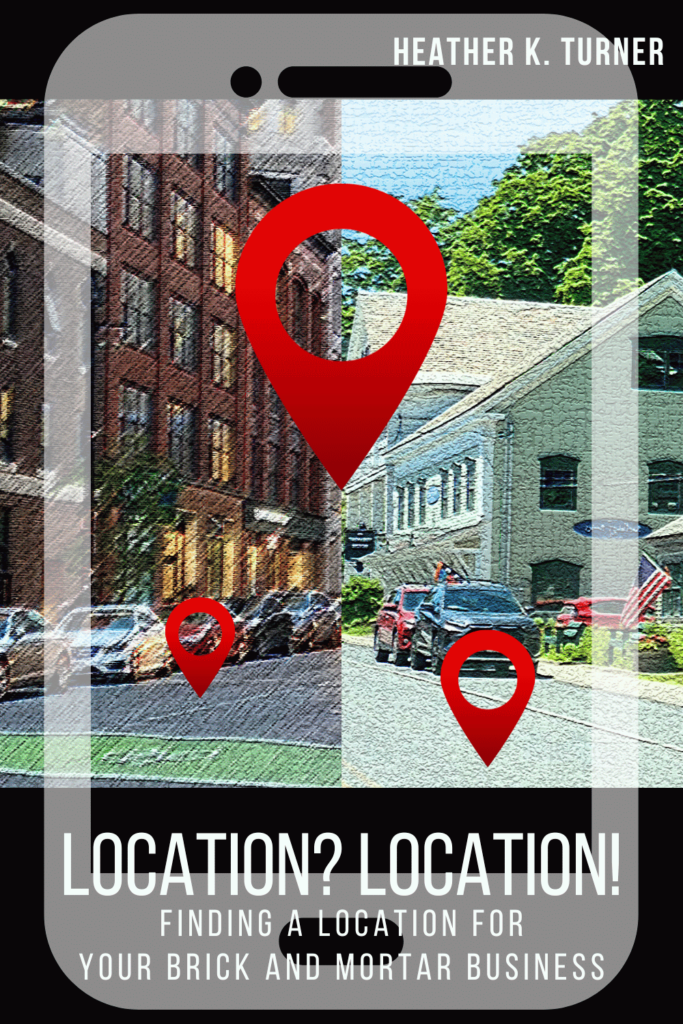A.I. Platform FAQs and Best Practices
 This is my 2 cents based on what I know about AI so far. Since I am still spending several hours per day learning new AI platforms, and new information it’s going to be a moving target info wise, this is my knowledge and my personal take on all of this so far.
This is my 2 cents based on what I know about AI so far. Since I am still spending several hours per day learning new AI platforms, and new information it’s going to be a moving target info wise, this is my knowledge and my personal take on all of this so far.
AI Platforms output is not always correct, ALWAYS fact check especially if you are using it for a research tool. Hopefully that information is out there already for most people, but I’m still running into people just testing the waters for the first time that don’t actually know that.
Keep in mind anything added to AI engines is being used to train the AIs; don’t ever put confidential or private information in. Also, be cognizant of putting any personal information in. Just like you shouldn’t be using your favorite vacation spot as a password, hackers are also using personal information to train AIs to hack into accounts.
There has been a recent uptick in hacked social media accounts that is being attributed to AIs being trained by hackers to browse for personal information used publicly online, and that can include data being put into AI generators.
Some AIs are allowing you to opt out of data gathering as well as some platforms and programs that also integrate AI into their software.
To opt out of ChatGPT
- Go to your account at far left bottom, click on the three dots
- Go to settings
- Go to the Data Controls tab on left
- Slide “Chat history & training” to off
Meta/Facebook
- Go to https://www.facebook.com/privacy/genai
- Bottom of page, go to Learn more and submit requests here. https://www.facebook.com/help/contact/1266025207620918
- Select I want to delete any personal information from third parties used for generative AI
- You will have to go through a security check to submit
Adobe
- Go to https://account.adobe.com/privacy
- You may have to login
- Go to “Content analysis” and set the switch to “Off.”
Don’t use text straight from an AI platform for website text, blog text, or any other online published article text (social media posts are an exception as far as I can tell). Always rewrite and reword a bit. Google can tell it’s AI-generated content, and it can affect your Search Engine Optimization (i.e., how a business website gets found in Google search)
Don’t sign into any AI platform with your Google account or social media accounts, ALWAYS use an email and a unique password to login. Giving access to your Google account creates a backdoor which from a business and personal standpoint, can compromise your email account, and any other Google accounts you own: (Google Suite, Google Drive, Google My Business, Youtube, Google Docs, etc.).
If you are not familiar with Data Breaches and the cost of how it can affect a business (The global average cost per data breach was 4.45 million U.S. dollars in 2023.), please read https://www.upguard.com/blog/cost-of-data-breach and https://www.statista.com/statistics/273575/us-average-cost-incurred-by-a-data-breach/ .
This is also how many social media accounts get hacked. Granting access to Facebook through a backdoor can cause an account to get hacked, and just changing the password to the account, does not remove access, you have to remove app access too.)
If someone does give access to a Google account, and needs to unlink it/revoke permissions , here is a walkthrough https://support.google.com/accounts/answer/2541991?hl=en#:~:text=Select%20Connected%20accounts.
Revoke app access/external Access (social media)
Facebook https://www.facebook.com/help/942196655898243
Instagram https://help.instagram.com/588549329146493
Linkedin https://www.linkedin.com/help/linkedin/answer/a519947
Pinterest https://help.pinterest.com/en/article/connect-to-other-apps-with-pinterest
X (formerly Twitter) https://help.twitter.com/en/managing-your-account/connect-or-revoke-access-to-third-party-apps
Tiktok https://support.tiktok.com/en/safety-hc/account-and-user-safety/connect-to-third-party-apps
Please be extremely careful adding browser extensions to your browser to extend AI capabilities, there are A LOT of unsafe, unsecure and malicious browser extensions out there that can compromise people’s computers and contain malware or keyloggers, a good overview of browser security can be found here https://security.berkeley.edu/education-awareness/browser-extensions-how-vet-and-install-safely .
Malware can use known software vulnerabilities to infect your PC. A vulnerability is like a hole in your software that can give malware access to your PC. When you go to a website, it can try to use vulnerabilities in your web browser to infect your PC with malware. Apple computers can also be compromised as malware and virus programs designed specifically to attack Macintosh operating systems can be even more malicious and destructive than ones designed to attack PCs.
A keylogger is a form of malware or hardware that keeps track of and records your keystrokes as you type. It takes the information and sends it to a hacker.
A best practice is to NOT download any AI software. If there is a web-based version, use that instead. Before downloading any kind of software, do your research. Just Googling the name and reviews, or the name and whether it is safe will not give you legitimate search results. Insecure and malicious sites and software have a lot of sites that are either set up by them or paid to have them set up to make software come across as safe and legitimate. If you do download anything, make sure you have a good antivirus AND a good malware program, and it’s up to date; scan the program files before installing. When in doubt (even a little) don’t do it.
*Most antivirus programs say they cover malware, but they only cover a fraction of what’s out there. It’s best practice to have both. On average, over 500K malware and virus programs are created daily. I recommend Malwarebytes (free and paid versions are available). There are other good ones out there as well.
Be cautious when using AI photo editors/generators. This is a big gray area online at the moment, but watermarks and digital watermarks are being pulled into AI-generated works. Remember that AI-generated art aggregates other online media and creates something with it, including copyrighted artwork and photos.
Currently, it’s best practice not to use AI-generated art on anything online “owned” by a business—a website, blog, etc. There is a spate of lawsuits going on currently regarding copyright, and until things are officially ruled on, it’s better not to take a chance. I look at it this way: if a business gets sued for using a copyrighted image that was integrated and generated by an AI platform, the AI platform has Terms of Service that give themselves a waiver (the platforms) from liability but not the business, and even if the suit does get dismissed, there is the time, money and reputation of the business that is risked.
Until the courts have consistently ruled about this and more AI art generators start to accept their own liability for using copyrighted art in generated work, it’s better to be safe than sorry.
If a business gets hit with a claim by Getty images, the beginning claim will start at around $1500, they don’t care if you remove the image online, they WILL send collections to harass a business until they pay up. If you want some background on Getty copyright claims just Google: “Getty images copyright claims small businesses” or email me. I’ve been told horror stories by hundreds of businesses, and had to help several dozen businesses over the years who have been hit with Getty claims.
Keep in mind as well that many AI art generators claim copyright to the images produced and many only state that you can use the generated images for non-commercial use.
(September 7, 2023) Microsoft announced it will protect users from Copyright claims. (Which is terrific news, hoping additonal platforms will step up to this).
https://blogs.microsoft.com/on-the-issues/2023/09/07/copilot-copyright-commitment-ai-legal-concerns/
Canva (Canva.com) terms of service regarding AI generated content (as of 9/8/2023)
https://www.canva.com/policies/text-to-image-terms-2022-12-06/ *Note: Read the Legal Notice
I’ve talked to Canva about this, and they refer to this (above link) and have stated by email that to date, they will not be liable for any copyright claims. I first found this as a potential issue because certain prompts in their text to AI image generator, particularly using the watercolor feature, return a large portion of the time images that look like they have copyright signatures in them. From our 17 email exchanges about this topic: “We understand that the appearance of signatures on AI-generated images can be surprising and even concerning. We’re exploring solutions to mitigate their occurrence. However, the signature generated by Text to Image is just that: generated by the AI model. The AI model (Stable Diffusion) has learned from reviewing billions of pieces of data that some forms of images, such as paintings, often have a signature in a bottom corner, so it generated its own variation of one in response to the prompt.” Interesting that the AI platform only seems to be assigning “create a watermark” to the watercolor feature and not concept art, color pencil or ink print, to name a few options, and it doesn’t explain things that pop up like on the image to right where you have a double signature……. I have noticed (so maybe they paid a little attention) that the number of images has decreased in recent testing, but the one on the right I generated on Friday in Canva, so they still have some work to do. And since Getty Images is in the midst of a lawsuit with Stable Diffusion about this very topic…….
Example:

I love Canva, it’s incredibly useful, don’t get me wrong, but I also have a much greater concern that someone i.e. a small business, will use an image generated by the Canva Image generator and get sued not understanding that Canva isn’t going to protect them. So make sure the TOS is read and more importantly understood!
Stability AI https://stability.ai/terms-of-use (as of 9/8/2023)
Midjourney https://docs.midjourney.com/docs/terms-of-service (as of 9/8/2023)
DeviantArt https://stability.ai/terms-of-use (as of 9/8/2023)
The better the prompt the better the results, a good resource for learning how to use prompting is https://learnprompting.org/
I found using several AI platforms at once and putting in the same prompts gives in some cases, very different and varied feedback/results, if you’re using it for marketing, use it to cherry pick the best of the best.
Useful AI Platforms (there are many many more)
https://chat.openai.com/ (free and paid versions, the paid version is $20 per month)
https://www.bing.com/?scope=web&cc=US
https://elicit.org/ (for research from papers and publications)
How can it help small businesses? and What can AI be used for?
To date this list (and it’s the tip of the iceberg) is what “I” have used AI platforms/generators/sites for and found useful. There are 100’s of additional uses besides these listed, these are just the ones I’ve used so far. I find I’m using AI on a daily basis as it is so incredibly useful for a wide variety of things.
For marketing and business development:
- Research (always fact check)
- Business and consumer trends (always fact check)
- Article rewrites (see above #3)
- Social Media Posts
- Email scripts and scripts for autoresponders
- Keyword Research (always fact check)
- Generate video scripts
- Creating chatbots for customer service
- Automating emails
- Writing social media ad copy
- Writing print ad copy
- Writing Google Ad words and Bing Ad words copy
- Create, edit, and modify media and video files (mostly paid AI platforms including ChatGPT plus)
- Blog titles
- Blog posts (see above #3)
- Email marketing subject lines
- Email marketing content
- Website content* (see above #3)
For operations:
- Training Manuals
- Employee Manuals (always run by an HR pro)
- Transcribing text
- Automating tasks
- Voice assistants
- Help with grant writing/grant writing
- Cover letter and resume writing
- Inexpensive marketing ideas for small businesses
- Generate customer surveys
- Proofreading and Editing
- Create contracts (always run by a business lawyer)
- Scripts for lectures and talks (or a speech for an event or wedding)
- Lesson plan outlines
- Writing and debugging code
- Creating WordPress plugins
- Creating WordPress themes
- Write product descriptions
- Create tests
- Explain complex topics in layman’s terms
- Create content in other languages (please use a human being to double check)
- Create Interview questions
- Translate text
- Create outlines for a book or other content
- Creating job descriptions
- Creating job applications
- Creating job search listing content/text
- Extract data from text
- Product/service name ideas (same caveat as business name ideas below/Please check!)
- Business name ideas** (see below screenshot). Please make sure any business names are checked online before registering, in testing most of the major AI generators/platforms they are ALL making suggestions that when do a search in Google, many of the business names are already being used. This is a screenshot from the paid version of ChatGPT. Highlighted names for example are names already in use (9/8/2023)

Again this is the TIP of the iceberg on what a business can do with AI, with the exception of the video editing, all of the above were done using the free versions and free tools that were out there without adding browser extensions, or giving access to my Google account. So until the wild west of AI platforms has some more security and rules and regulations in place, how safe do you want to keep your business??
AI Program/Platform Directories (Many more out there, I found these useful to start)
One of the good Newsletters I subscribe to: (there are hundreds +++ out there. This one is an aggregate)
Articles of Interest:
- https://aiindex.stanford.edu/report/
- https://www.jatinderpalaha.com/prompt-engineering-in-business/
- https://bootcamp.uxdesign.cc/the-ultimate-list-top-100-ai-tools-in-2023-65c5ea1ccbd9
- https://www.fastcompany.com/90856183/30-ai-tools-you-can-try-for-free
- https://www.unite.ai/best-ai-tools-for-business/
- https://www.forbes.com/sites/bernardmarr/2023/02/28/beyond-chatgpt-14-mind-blowing-ai-tools-everyone-should-be-trying-out-now/?sh=1120aaa87a1b
- https://medium.com/insights-school/the-ultimate-list-of-ai-tools-by-category-from-nlp-to-deep-learning-2ef3431ccc57
- https://www.makeuseof.com/can-you-sell-canva-made-designs/
- https://www.nytimes.com/interactive/2023/04/14/upshot/up-ai-uses.html (may need a subscription to the NYT)
- https://www.synthesia.io/post/ai-tools






